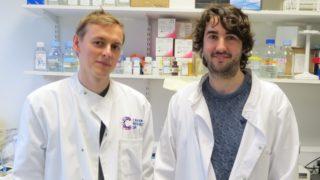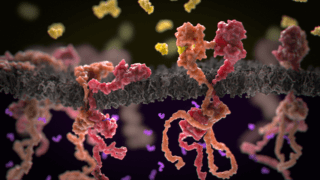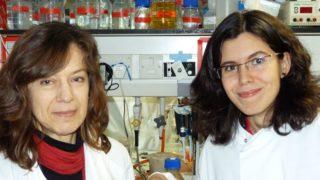Category: Publications
Search News
Categories
Archives
Uncovering the evolutionary history of IBD-associated colorectal cancer
11th July 2018
A team of researchers from the BCI, led by Prof Trevor Graham, Lead of the Evolution and Cancer Biology Laboratory, have reported the genetic events involved in the early development of bowel cancer in patients with inflammatory bowel disease (IBD). Such knowledge may be able to be exploited to design simple diagnostic tests to stratify patients with IBD at high risk of developing cancer.
Read moreResearch explainer: Mis-segregation of human chromosomes
13th June 2018
Dr Sarah McClelland from Barts Cancer Institute, Queen Mary University of London, has recently published new research in the journal Cell Reports revealing new insights into why cell division can sometimes go wrong.
Read moreResearch suggests improved detection rates are needed to maximise cancer prevention
8th June 2018
Current detection strategies are found to have identified only 2.6% of the BRCA gene mutation carriers in the Greater London population, according to a recent study published in the Journal of Medical genetics. The findings of the study, performed by researchers from the BCI’s Centre for Experimental Cancer Medicine, led by Dr Ranjit Manchanda, suggest that enhanced and new approaches are required to maximise the opportunity for breast and ovarian cancer prevention.
Read moreForecasting the evolution of cancer
28th May 2018
New research, published today in Nature Genetics, has developed a computer model that forecasts the changes that occur within tumours as they develop. In the future, it is hoped that such a model may enable the prediction of the trajectory of tumour growth in patients, allowing clinicians to pre-empt disease course and tailor treatment regimens accordingly.
Read moreResearch reveals how breast cancer drug can accelerate cancer cell growth
1st May 2018
The breast cancer drug lapatinib which is designed to shrink tumours can sometimes cause them to grow in the lab, according to a new study published in eLife. By understanding the molecular basis of this phenomenon, scientists hope that their findings will lead to safer treatment options and drug design in the future.
Read moreUsing a modified adenovirus to overcome treatment resistance in prostate cancer
27th April 2018
Researchers from BCI’s Centre for Molecular Oncology, led by Dr Gunnel Halldén, have identified a mechanism by which a modified flu-like virus, called AdDD, is able to negate resistance to a drug called mitoxantrone and increase tumour cell killing in prostate cancer models. This mechanism is dependent on B-cell lymphoma 2 (Bcl-2)- a protein involved in the regulation of cell death (apoptosis).
Read more





